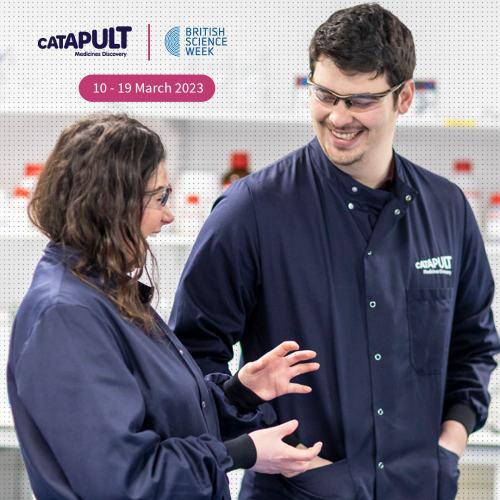Sustaining Skills to Supercharge the UK Life Sciences Sector

The life sciences sector is among the most valuable and strategically important to the UK economy. It is critical to the country’s health, wealth, and resilience. On 6 March 2023, the UK government unveiled its new Science and Technology Framework to cement the UK as a science and technology superpower by 2030.
As COVID-19 showed, the life science sector is as essential to national health as it is to national wealth. It will improve patient outcomes and high-tech industry growth in every corner of the UK.
Employment in life sciences in the UK has continuously increased since 2012. According to the Office for Life Sciences, there were 282,000 people employed in the UK life sciences sector in 2021 – a 4% increase on 2020.
Medicines Discovery Catapult (MDC) is at the life science industry's epicentre, working in close collaboration with the sector. It is ideally placed to identify key areas where drug innovators need advanced skills to help enable the development of game-changing medical breakthroughs to benefit patients.
A survey by the British Science Association, which runs the annual British Science Week celebration of STEM subjects, found that only 34% of 14-18 year-olds in the UK think science is relevant to their life.
In response to statistics of this nature, MDC partnered with the Cheshire and Warrington Local Enterprise Partnership’s (LEP) Pledge Partnership for a school engagement programme to inspire the region's future scientists to consider a career in the sector. Scientists from MDC reached hundreds of pupils with interactive lessons showing how medicines are made and how impactful a career in science can be.
To mark British Science Week 2023 (10-19 March), MDC has also produced a virtual school video lesson. The video will be distributed across the regional school network as part of the British Science Week curriculum. The virtual lesson focuses on how medicines are made, the need for new medicines, and why there is a need for more people to enter the industry.
MDC, which has employed and trained over 1,300 individuals since 2016, has previously partnered with Levenshulme High School, a Manchester-based all-girls school, to host events to break down societal misconceptions surrounding STEM careers and to drive greater gender representation.
Talking about these initiatives, Professor Chris Molloy, CEO of Medicines Discovery Catapult, said: “Nurturing and inspiring the next generation of scientists is joyful and purposeful. They will be crucial in growing our sector and improving our healthcare, so encouraging agile and multidisciplined scientists into the industry has never been more important.
“The theme for this year’s British Science Week is Connections, which is what MDC does best. MDC’s purpose is to transform great UK science into better treatments through partnerships – that means people and their skills. Our daily interactions with a wide range of R&D innovators allow us to see gaps and foster skills development from the roots up.
“We are here to deploy the skills of our expert teams in the service of our R&D partners and to contribute to their success. We are also delighted to see the impact of our alumni spreading widely across the UK’s biotech community. We will continue to build upon the initiatives we, and our colleagues across the UK, have established to ensure a steady pipeline of multidisciplined, investible talent to sustain our sector’s growth long into the future.”





















